News in Brief
-
 Animals
AnimalsPlayful pups conceived via in vitro fertilization for the first time
Scientists have solved the mystery of how to perform in vitro fertilization in dogs, which could help rid canines of heritable diseases.
By Meghan Rosen -
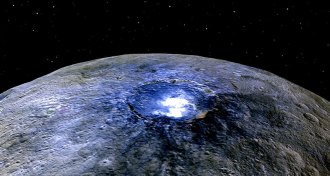 Planetary Science
Planetary ScienceSalty source of Ceres’ mysterious bright spots found
Bright spots on Ceres contain salts from a possible subsurface layer of ice while ammonia-rich minerals hint at building blocks incorporated from the far outer solar system.
-
 Neuroscience
NeuroscienceEyes hard at work can make ears go temporarily deaf
When challenged with a tough visual task, people are less likely to perceive a tone, suggesting that perceptual overload can jump between senses.
-
 Planetary Science
Planetary ScienceJapanese spacecraft reaches Venus — five years late
The Japanese Space Agency’s Akatsuki spacecraft succeeded at a second attempt at orbiting Venus, five years after an engine failure prevented its intended mission.
-
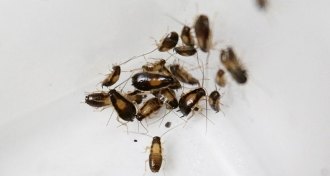 Animals
AnimalsGut bacteria’s compounds bring cockroaches together
German cockroaches may rely on gut bacteria to help attract fellow roaches.
-
 Physics
PhysicsThere’s no hiding from new camera
A new camera tracks objects hidden around a corner by detecting light echoes, similar to the way bats use sound to find prey.
By Andrew Grant -
 Animals
AnimalsPygmy slow loris hibernates in winter
The pygmy slow loris truly hibernates, making it the first primate found outside Madagascar to do so, a new study says.
By Susan Milius -
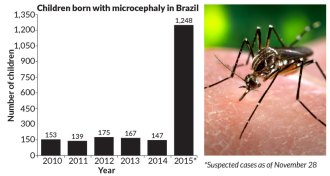 Health & Medicine
Health & MedicineVirus spread by mosquitoes linked to rare birth defect
In addition to fever, rash and vomiting, Zika virus may cause rare birth defect.
-
 Health & Medicine
Health & MedicinePregnancy hormone could keep multiple sclerosis at bay
A small trial hints that pregnancy hormone can reduce MS flare-ups.
-
 Astronomy
AstronomyMysterious cosmic signals carry a clue to their origins
A burst of radio waves from another galaxy ran into a dense magnetized plasma while en route to Earth, hinting at an origin near a population of young stars.
-
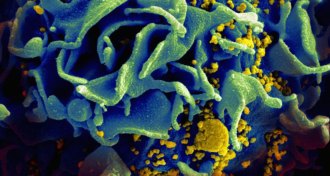 Health & Medicine
Health & MedicineTaking antiviral drug ‘on demand’ can guard against HIV
The antiviral drug Truvada taken before and after sex cuts HIV transmission rates.
By Meghan Rosen -
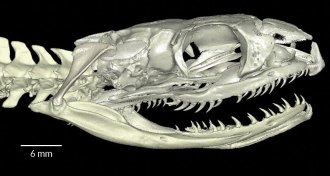 Animals
AnimalsSnakes evolved from burrowing ancestor, new data suggest
A new X-ray analysis of inner ears is the latest to weigh in on whether modern snakes descended from a burrowing or a swimming reptile.
By Meghan Rosen